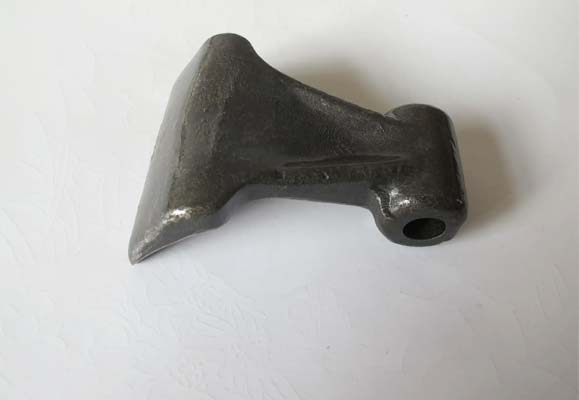- Contact Innally, Let you purchase forgings in China more favorable prices, products more assured!
- Hotline:+(86)15038323776 Email:innally@innally.com
Application and requirements of Marine forgings in ocean engineering
- Category: Marine engineering forgings, Steel forgings
- |
- Date: 11/10/2023
Marine forgings, as key parts, play a vital role in ocean engineering. Its manufacturing needs to be carried out in strict accordance with relevant standards and technical requirements to ensure that it has excellent corrosion resistance, high strength and toughness and other characteristics to meet the needs of Marine engineering. At the same time, the control of its quality should not be relaxed, from raw materials to finished product inspection to form a set of strict quality control system to ensure the safety and reliability of its application.
Product Details
Marine engineering refers to the engineering technology field of utilizing Marine resources, developing Marine new energy and solving Marine space problems. Marine forgings, as an important part, are widely used in the construction of offshore platforms, the manufacture of ships and the development of Marine energy.
- Application field
Offshore platform: Offshore platform is the infrastructure of offshore engineering, including fixed and floating two types. Marine forgings play an important role in the construction of offshore platform, such as platform base, pile leg, cantilever beam and other key parts. These forgings not only need to withstand the weight of the platform, but also need to resist corrosion and shock in the Marine environment.
Shipbuilding: Marine forgings also play an important role in shipbuilding, especially in key parts of the manufacturing, such as the hull structure, bearings and connectors in the propulsion system. Because the ship travels underwater for a long time, these forgings need to have excellent corrosion resistance and high strength.
Marine energy development: Marine energy development and utilization include Marine wind power generation, Marine tidal energy, Marine thermal energy, etc. In these projects, Marine forgings also play a key role, such as the base of wind turbines, and the core components of tidal energy power generation equipment.

- Technical requirements
Corrosion resistance: Because the equipment in Marine engineering is in a high humidity and high salinity environment for a long time, there are high requirements for the corrosion resistance of forging materials. Some key parts, such as hull structures, submarine pipelines, etc., need to use stainless steel forgings with excellent corrosion resistance.
High strength and toughness: Forgings in Marine engineering need to withstand huge loads, so they need to have high strength and good toughness. For example, the base forgings of offshore platforms need to be able to withstand the weight of the platform and superstructure, while also being able to withstand the impact of waves and storms.
Manufacturing accuracy: Forgings in Marine engineering usually need to have a high manufacturing accuracy to meet the requirements of installation and use. For example, the propulsion shaft and intermediate shaft need to have a high degree of coaxiality and straightness to ensure the stability and efficiency of the ship.
Third, quality control
In order to ensure the safe and reliable application of Marine forgings in Marine engineering, it is necessary to strictly control their quality. The following are the quality control requirements for several key aspects:
Raw material control: Select materials that meet technical requirements, and strictly control chemical composition, mechanical properties and other indicators. Reinspect incoming raw materials to ensure their quality meets the requirements.
Production process control: develop a reasonable forging process, strict control of heat treatment, surface treatment and other key links. In the production process of forgings quality spot check, timely find and deal with problems.
Finished product inspection: Complete quality inspection of finished forgings, including appearance, size, hardness, non-destructive testing, etc. Ensure that the forgings meet the design requirements and ensure their safety and reliability.
Marine forgings, as key parts, play a vital role in ocean engineering. Its manufacturing needs to be carried out in strict accordance with relevant standards and technical requirements to ensure that it has excellent corrosion resistance, high strength and toughness and other characteristics to meet the needs of Marine engineering. At the same time, the control of its quality should not be relaxed, from raw materials to finished product inspection to form a set of strict quality control system to ensure the safety and reliability of its application.
nannan
INNALLY website editing, to provide you with forging related information
Related Products
Search
Forging center
- Steel forgings
- Aluminium alloy forging
- Titanium alloy forging
- Stainless steel forging
- Copper forging
- Automotive forgings
- Locomotive forging
- Bicycle forgings
- Motorcycle forging
- Rigging and fasteners
- Bearing forging
- Electric power fittings
- Marine forging
- Mechanical forgings for metalworking
- Mining machinery forgings
- Marine engineering forgings
- Construction machinery forgings
Popular product

© 2025. All Rights Reserved.






